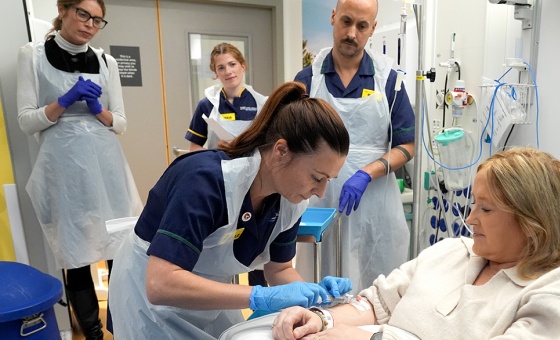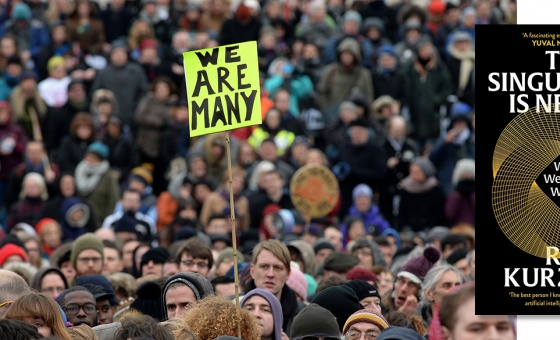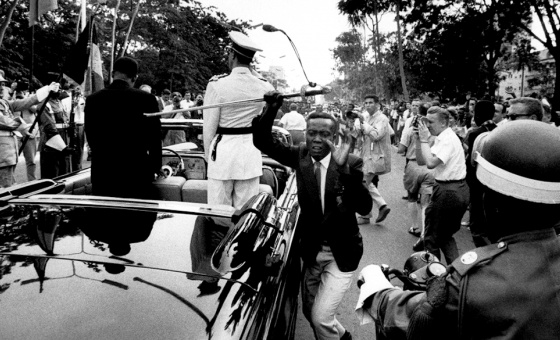This is the last article you can read this month
You can read more article this month
You can read more articles this month
Sorry your limit is up for this month
Reset on:
Please help support the Morning Star by subscribing here
PALESTINE campaigners gathered in Parliament Square in London today in a vigil for the more than 2,000 children killed in Gaza.
At least 5,700 people have been killed in Israel’s bombardment since October 7, according to the Gaza health ministry.
Medical Aid for Palestine (MAP), the charity which organised the action, called for an immediate ceasefire to stop the loss of thousands more young lives.
Demonstrators wrote the name of a Palestinian child killed in Israel’s ongoing bombardment of Gaza on the palm of their hand.
Children in Gaza reportedly have written their own names on their hands, terrified that if they are killed in the bombing, their bodies will not be identified or buried with their loved ones.
A letter from nine-year-old Zeina Abu Libdeh, who was forced to leave her home in the Al Remal area of Gaza, was read out.
It said: “I feel sad as my brother died in one of these strikes and I did not have a chance to say goodbye.
“Our lives have changed forever. We have no water and no electricity. I can barely go to the toilet.
“I miss my neighbours and I miss my friends. I no longer play. Our life is a nightmare… Please let the war end.”
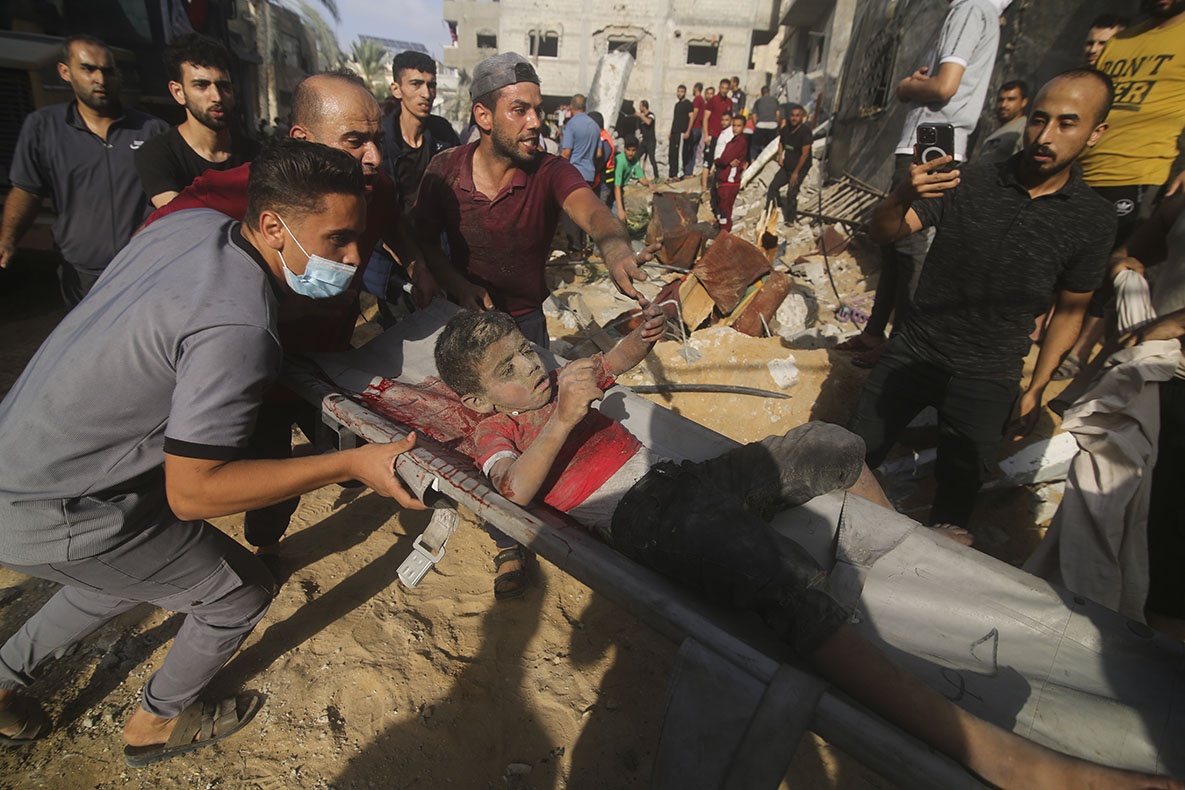
MAP CEO Melanie Ward said that a further 5,000 children have been injured and 800 children are missing, believed to be dead under the rubble.
She said: “Time is running out for the one million children of Gaza who are living an unspeakable nightmare.
“Indiscriminate bombing must stop, a ceasefire must be secured, and sufficient aid, including fuel, must be allowed in.
“World leaders have a responsibility to end these horrors and protect Gaza’s children.”
Ms Ward said the charity has 20 staff on the ground in Gaza trying to provide support, but they are “struggling to survive” and cannot deliver a humanitarian response under constant bombardment.
She said: “What is happening is unacceptable, it is very clearly not being conducted in line with international law.
“The British government and the Israelis have a responsibility to protect the children of Gaza, and it is clear the only way to do that is to have a ceasefire now.”
She called on the British government, politicians and world leaders to “stop greenlighting what is happening” and take action to save Gaza’s children.
Charities have been urging the government to prepare to provide refuge to thousands of Palestinians who want to flee Gaza, devising a list of measures they said the government could implement.
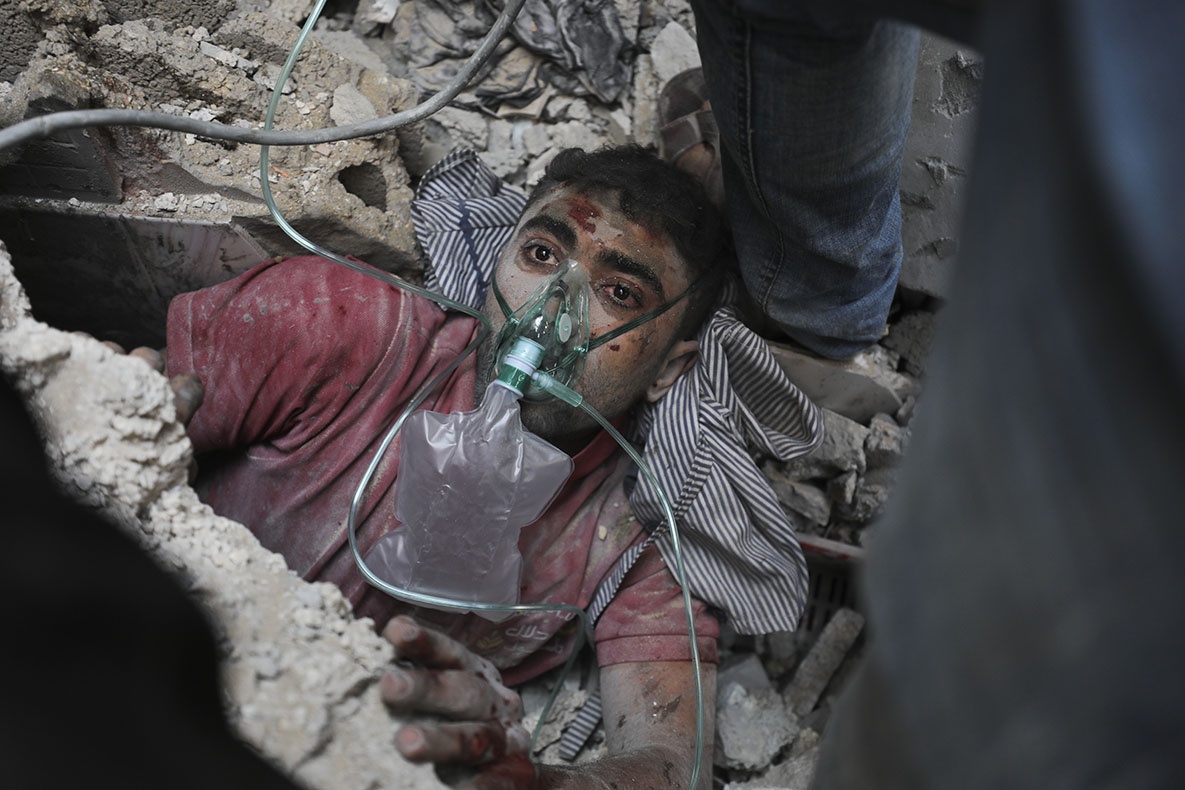
But Financial Secretary to the Treasury Victoria Atkins said the government’s priority should be to “keep the pressure” on Hamas rather than open up a humanitarian route “at this point in time.”
The Refugee Council, which was among the groups, said that Britain must be ready to play a role in the refugee crisis.
Chief executive Enver Solomon said: “As the conflict worsens, the number of Palestinian men, women and children displaced and those facing grave danger will only increase.
“People who aren’t secure and safe in their homes need access to safety.”
Hundreds of thousands of people from across Britain gathered in the capital on Saturday to stand with Gaza and to demand an immediate ceasefire.
Organisers, including Stop the War Coalition and Palestine Solidarity Campaign, have called for another national march this weekend, October 28, starting at Victoria Embankment at noon.
No 10 said ministers were continuing to speak with “leaders in the region” as part of efforts to free hostages in Gaza but would not say whether there had been direct communication with Hamas or proxies in Qatar or Egypt.
The Prime Minister’s spokesman said the government could not speculate on why some captives were being released, with four freed by Hamas in recent days.
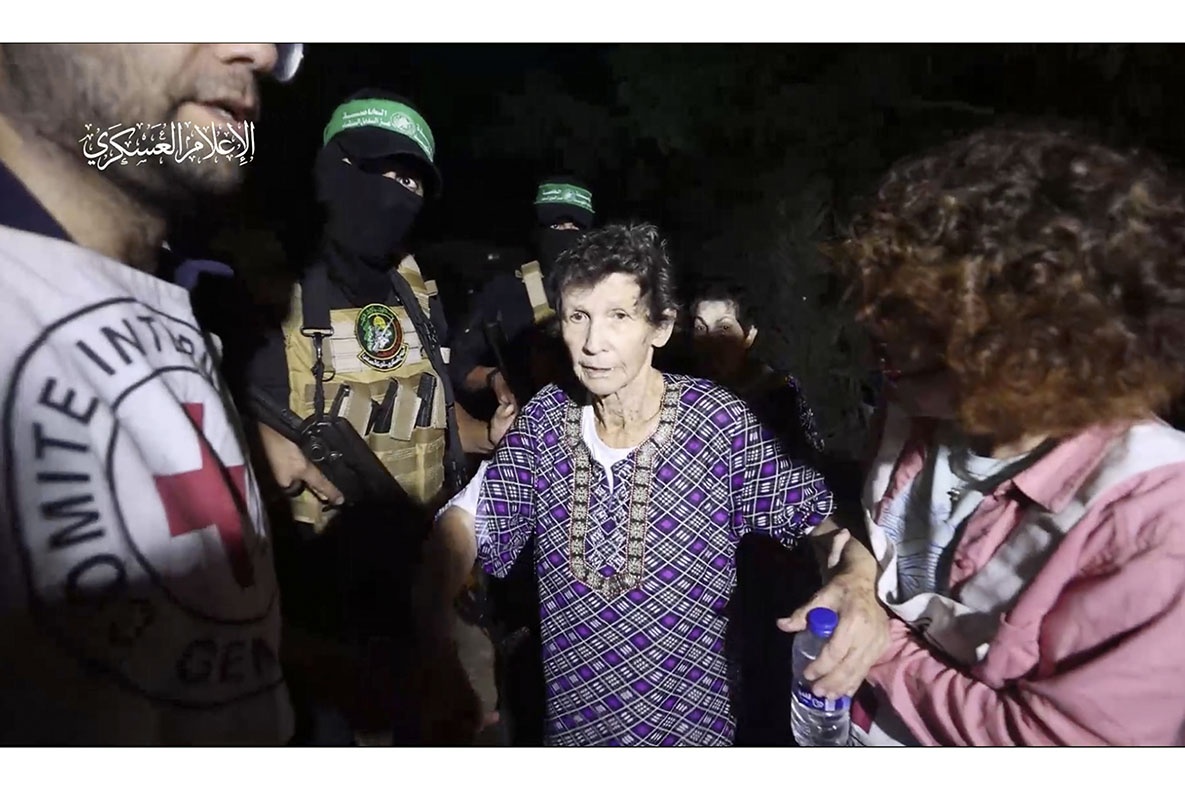
Eighty-five-year-old Yocheved Lifshitz and 79-year-old Nurit Cooper were released on Monday evening.
Speaking about her ordeal, making her the first to do so, Ms Lifshitz said that hostages were kept in a network of tunnels that “looked like a spider web” and was told by the guard that “they are people who believe in the Koran and wouldn’t hurt us.”
She said captives were treated well and received medical care, including medication and feminine hygiene.
Hostages were given one meal a day of cheese, cucumber and pitta bread, she said, adding that her captors ate the same.
Ms Lifshitz said that Israel overlooked warnings that something was afoot ahead of the attack, saying: “We were the scapegoat of the government.
“[Hamas] warned us three weeks before they taught us a lesson.”
A survivor of the Kibbutz Be’eri attack on October 7, part of the Hamas assault which killed 1,400 people, said in an interview that Israeli security forces “undoubtedly” killed a large number of their own civilians in the crossfire.
The interview was originally published on October 15 but removed from the website of radio broadcaster Haboker Hazeh and published on the Electronic Intifada today.
In the interview, Yasmin Porat said that Hamas fighters intended to “kidnap us to Gaza, not to murder us.” However, hundreds of Israelis were killed in their homes.
She said: “After we were there for two hours with the abductors, the police arrive[d].
“A gun battle [took] place that our police started.”
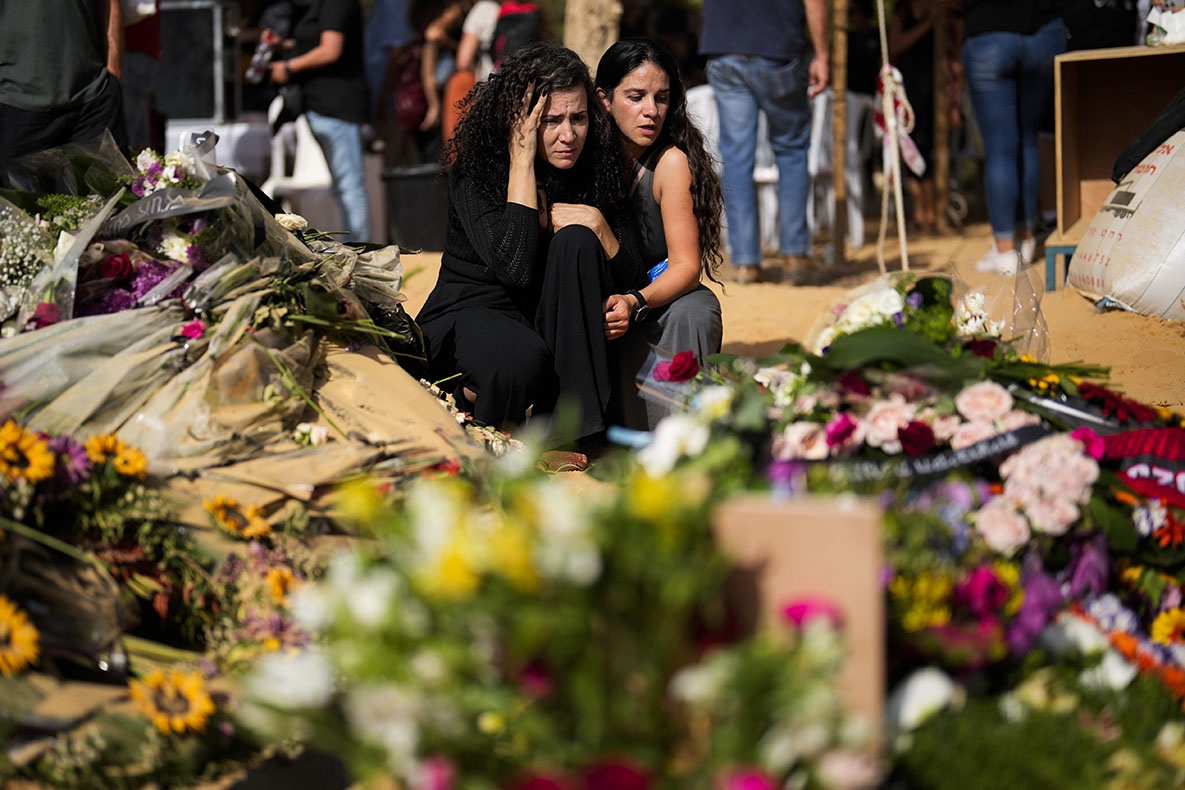
Israel increased its strikes on the Gaza Strip today, killing more than 700 people in 24 hours, according to health officials in the region.
Medical facilities were forced to close due to bomb damage and a lack of power as Gaza’s 2.3 million population is running out of food, water and medicine.
Israel said it had launched 400 air strikes over the past day, killing Hamas commanders, hitting militants as they were preparing to launch rockets into Israel and striking command centres and a Hamas tunnel shaft.
But witnesses and health officials said many of the air strikes hit residential buildings, some of them in southern Gaza where Israel had told civilians to take shelter.
Abdel Rahman Mohamed, a volunteer who helps transfer bodies to Khan Younis’s main cemetery, said: “Bodies pour in by the hundreds every day. We use every empty inch in the cemeteries.
“Some bodies arrive in pieces in bags. It’s horrible.”
The United Nations agency for Palestinian refugees said six of its staff were killed in today’s bombings, bringing the death toll of its workers since the war started to 35.







